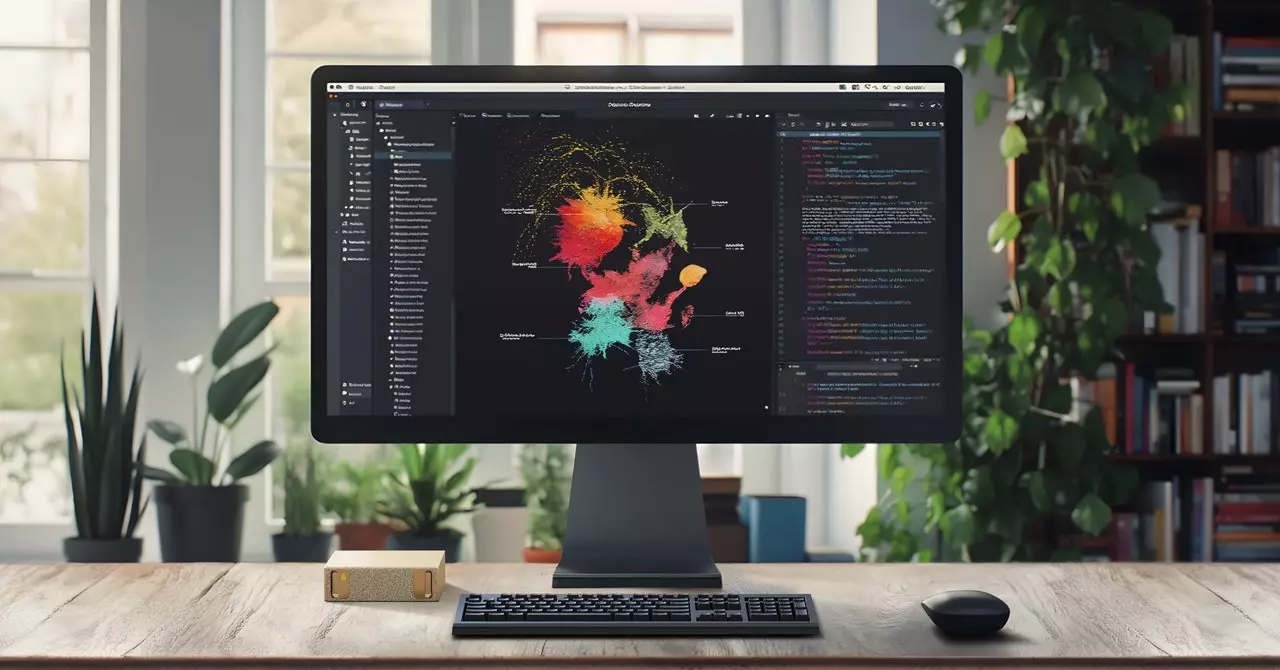The world of artificial intelligence (AI) has recently reached a pivotal point, with immense strides in technology making it more accessible than ever. As the demand for sophisticated AI models grows, Nvidia is stepping up to meet this need in an innovative way. The launch of their new product, the Digits personal AI supercomputer, represents a significant shift in how individuals and smaller organizations can interact with complex AI systems. This article delves into the implications of this launch, examining its potential to democratize AI technology and the challenges that may accompany it.
In an era where open-source projects are gaining considerable momentum and DIY AI solutions are enticing a broader audience, Nvidia’s entry into the personal AI supercomputer market is a strategic response to burgeoning public interest. The Digits device, which is estimated to start at $3,000, is compact, roughly the size of a small book, and is targeted at AI enthusiasts—from researchers to students. Nvidia’s effort to create a product that can be hosted in domestic or office environments aims to empower users by providing them with the hardware and tools to experiment and innovate within the AI field.
The Digits is laden with advanced technology, featuring the GB10 Grace Blackwell superchip, and is optimized to handle intricate computations required for AI model training. With a robust storage capacity of up to 4 terabytes and 128 gigabytes of unified memory, the system is designed to tackle large-scale models. The ability to perform intensely computational tasks normally reserved for vast cloud infrastructures positions the Digits as a convenient standalone solution for those keen on AI research.
Potential for Innovation and Experimentation
By making powerful computing accessible to a wider audience, Nvidia is setting the stage for increased experimentation and innovation in AI. The company claims that Digits can run large language models with as many as 200 billion parameters, a characterization of complexity that opens new avenues for those eager to delve into AI development. The collaborative potential of connecting multiple Digits units enables the execution of even larger models like Meta’s Llama, facilitating a community of hobbyists and researchers aiming to explore the capabilities of AI close to that of industry giants like OpenAI and Google.
The implications of this development cannot be understated; individuals previously reliant on cloud computing with its costs and limitations can now experiment with the next frontier in AI right from their own workspace. This accessibility could lead to novel applications, creative projects, and educational opportunities, ultimately nurturing the next generation of AI talent.
Despite its potential, the Digits supercomputer is not without its limitations. While it can provide a practical alternative for experimentation, it does not match the sheer scale or power of data centers owned by tech giants like Microsoft and Google. The best versions of proprietary models available from these companies will likely remain beyond the reach of even the most advanced personal computers. Thus, while Digits democratises access to certain aspects of AI, it also highlights a growing divide between individual users and those companies with extensive resources and capabilities.
Moreover, the increase in accessible AI technology raises ethical considerations. As more individuals and small entities gain the prowess to utilize complex AI systems, querying the responsible use of this technology becomes essential. Issues surrounding data privacy, algorithm bias, and potential misuse must be addressed as the landscape of personal computing evolves.
Nvidia’s proactive initiatives, such as the launch of Digits, reflect the larger trends dictating the direction of the AI industry. The growing need for highly specialized computing in smaller forms points toward a possible shift in how we envision and deploy technology. The company’s savvy approach not only positions it as a leader in AI hardware production but also places it at the forefront of a transformation where the barriers to entry in AI development are gradually lowered.
As we anticipate the release of the Digits personal AI supercomputer later this year, we must consider the transformative impact such technology may have on individuals and industries alike. With the right oversight and ethical frameworks in place, this could herald a new age of innovation in AI, paving the way for a future where powerful computational tools are no longer confined to corporate giants but are accessible to anyone eager to explore the possibilities of artificial intelligence.


Leave a Reply